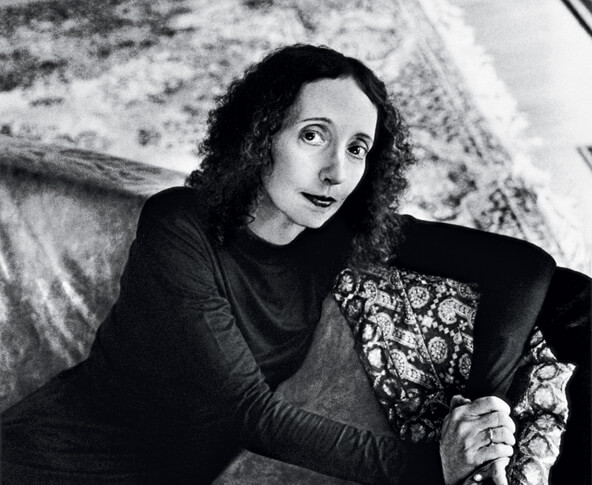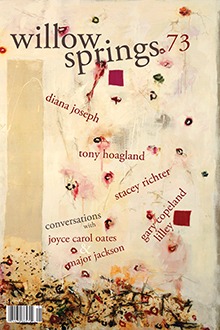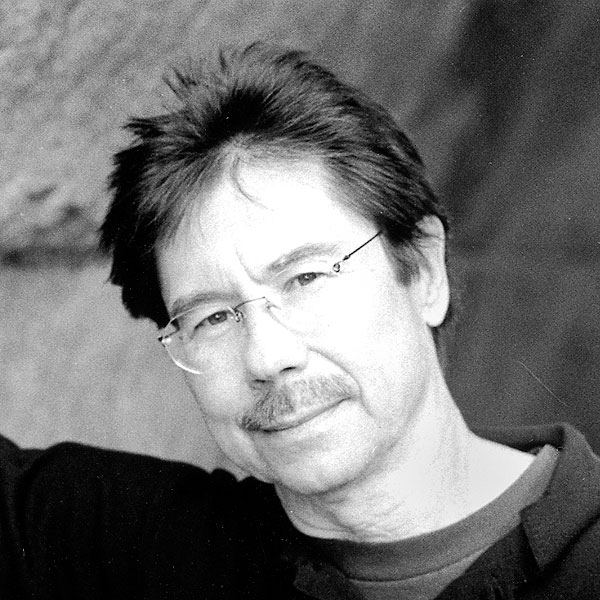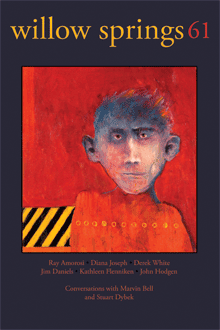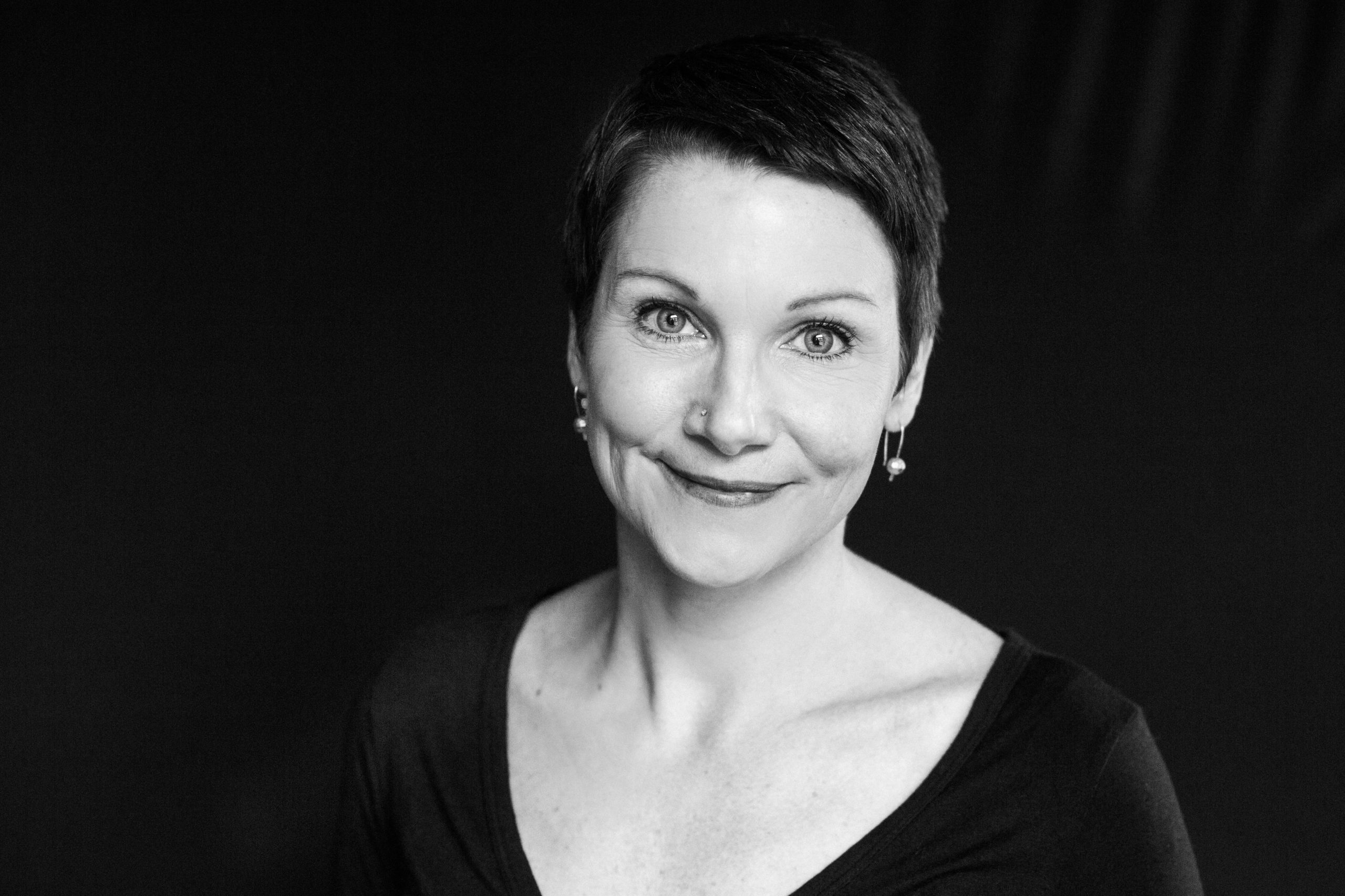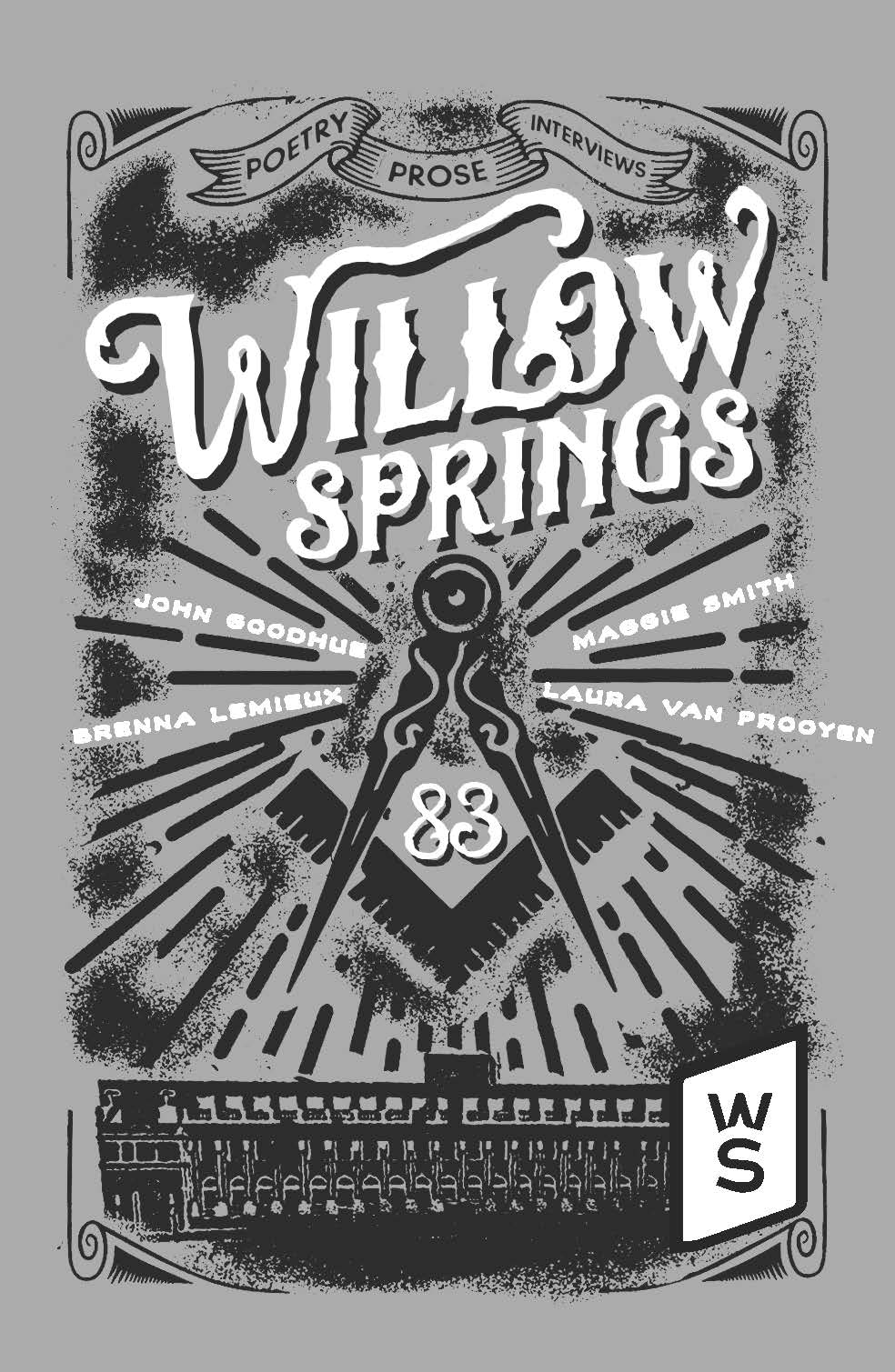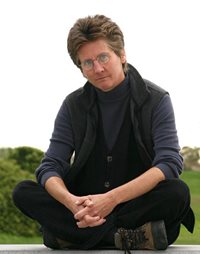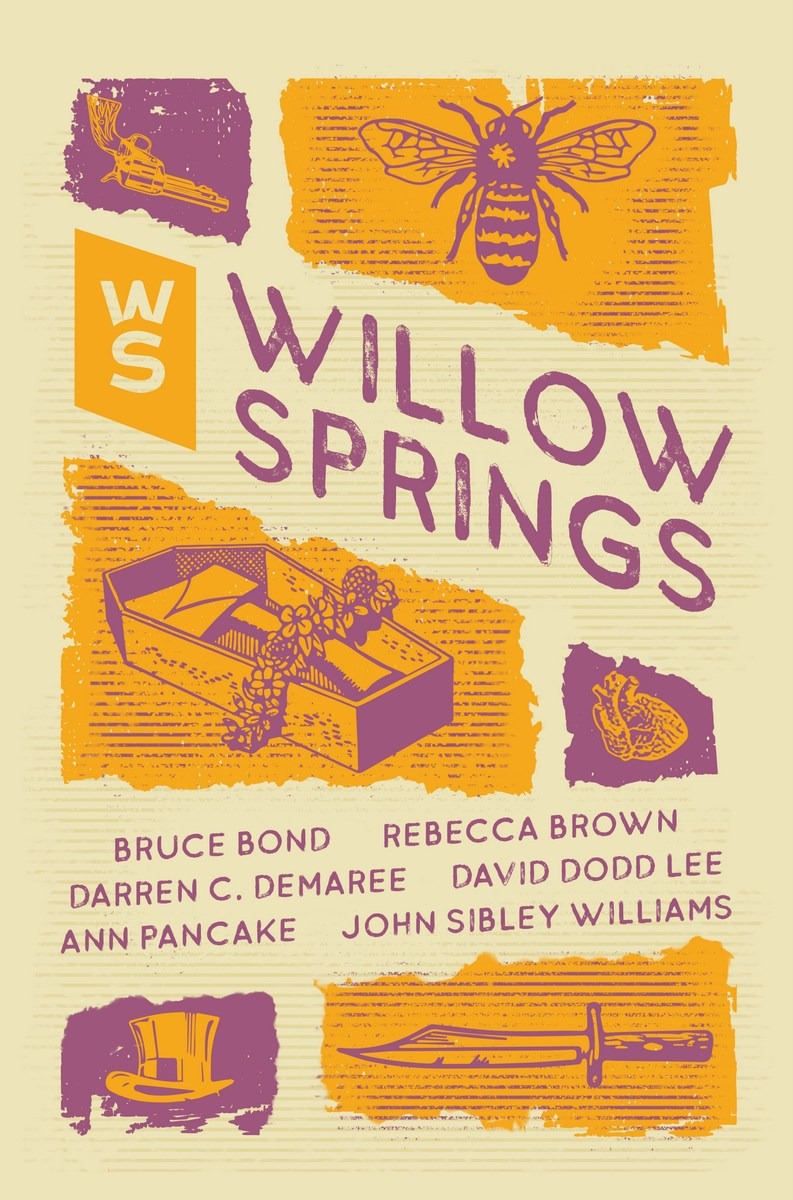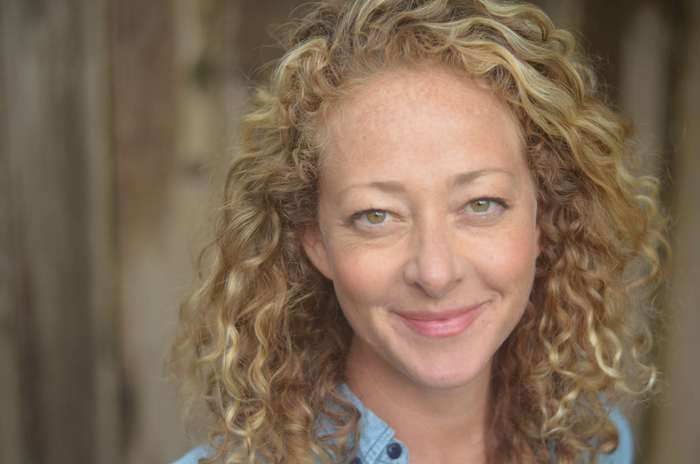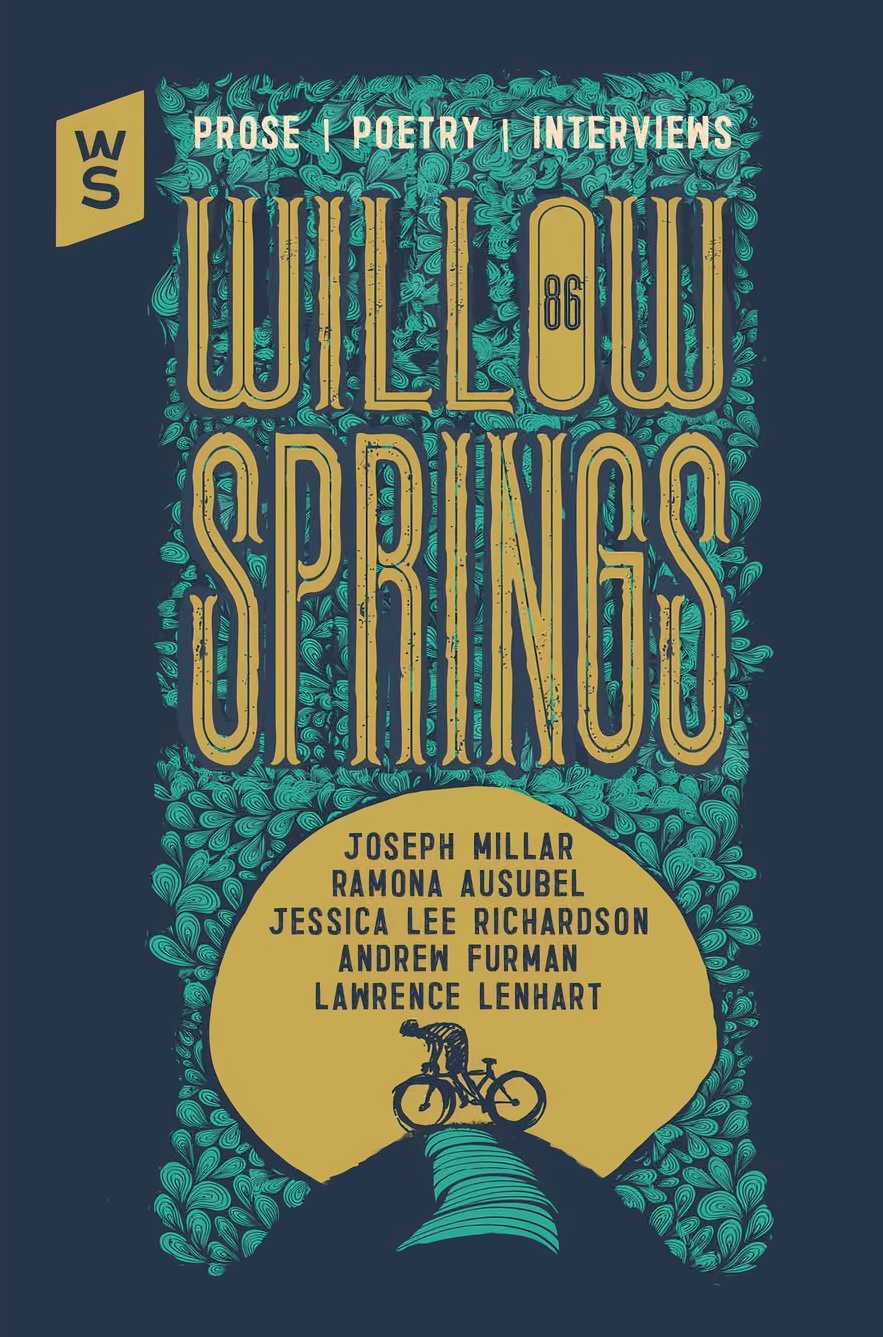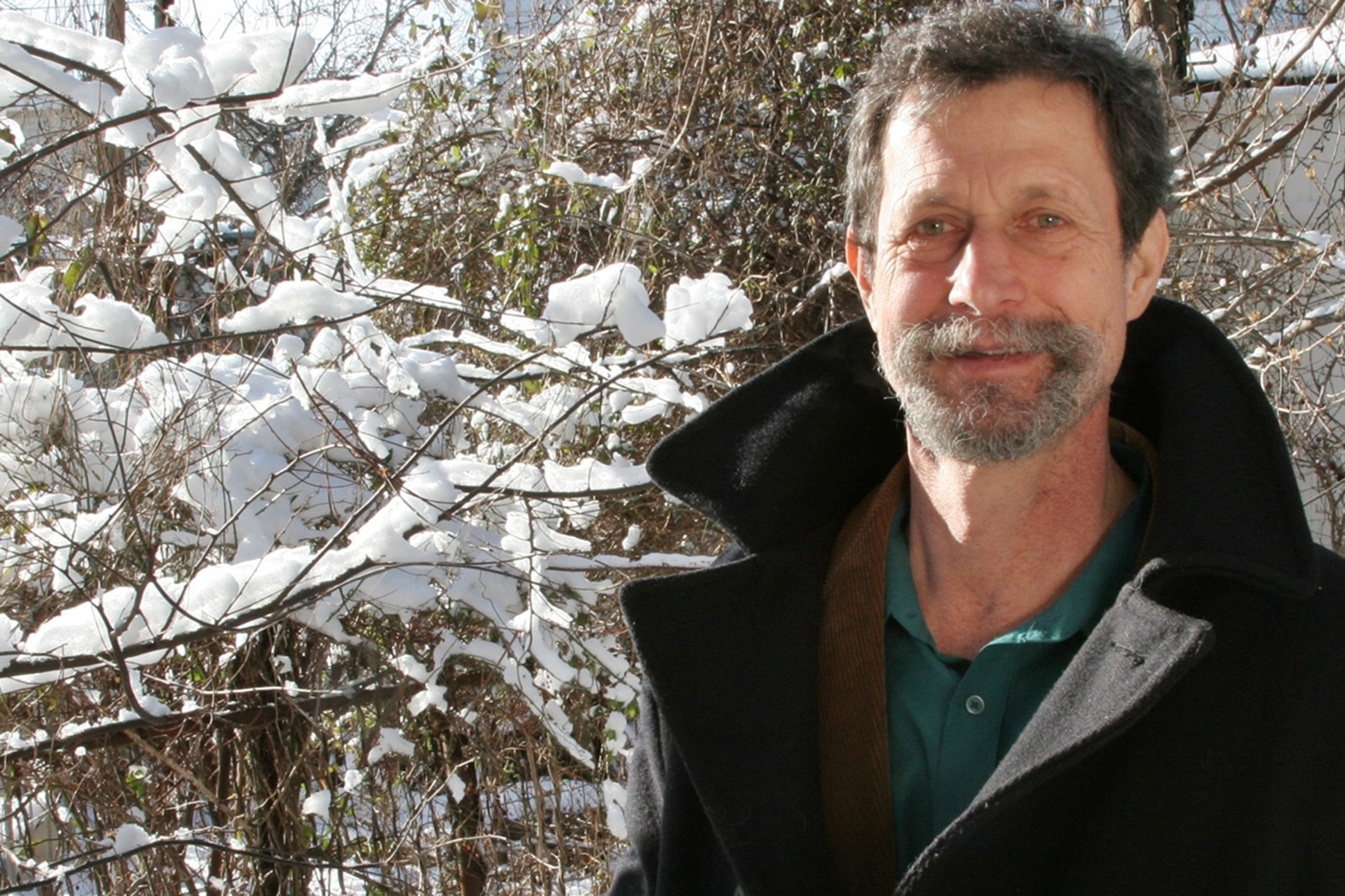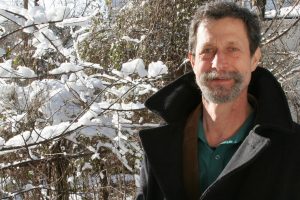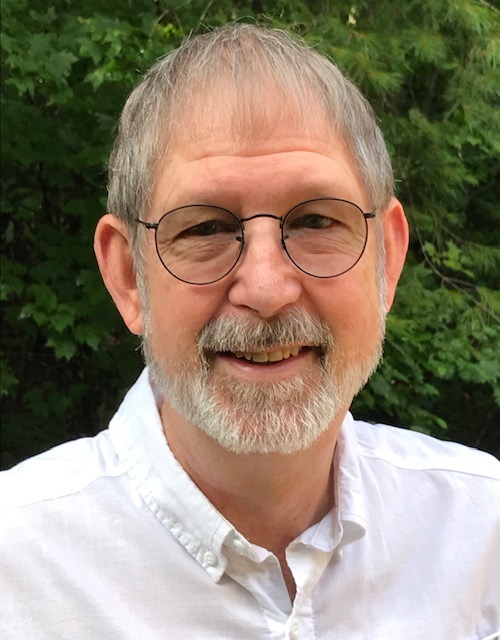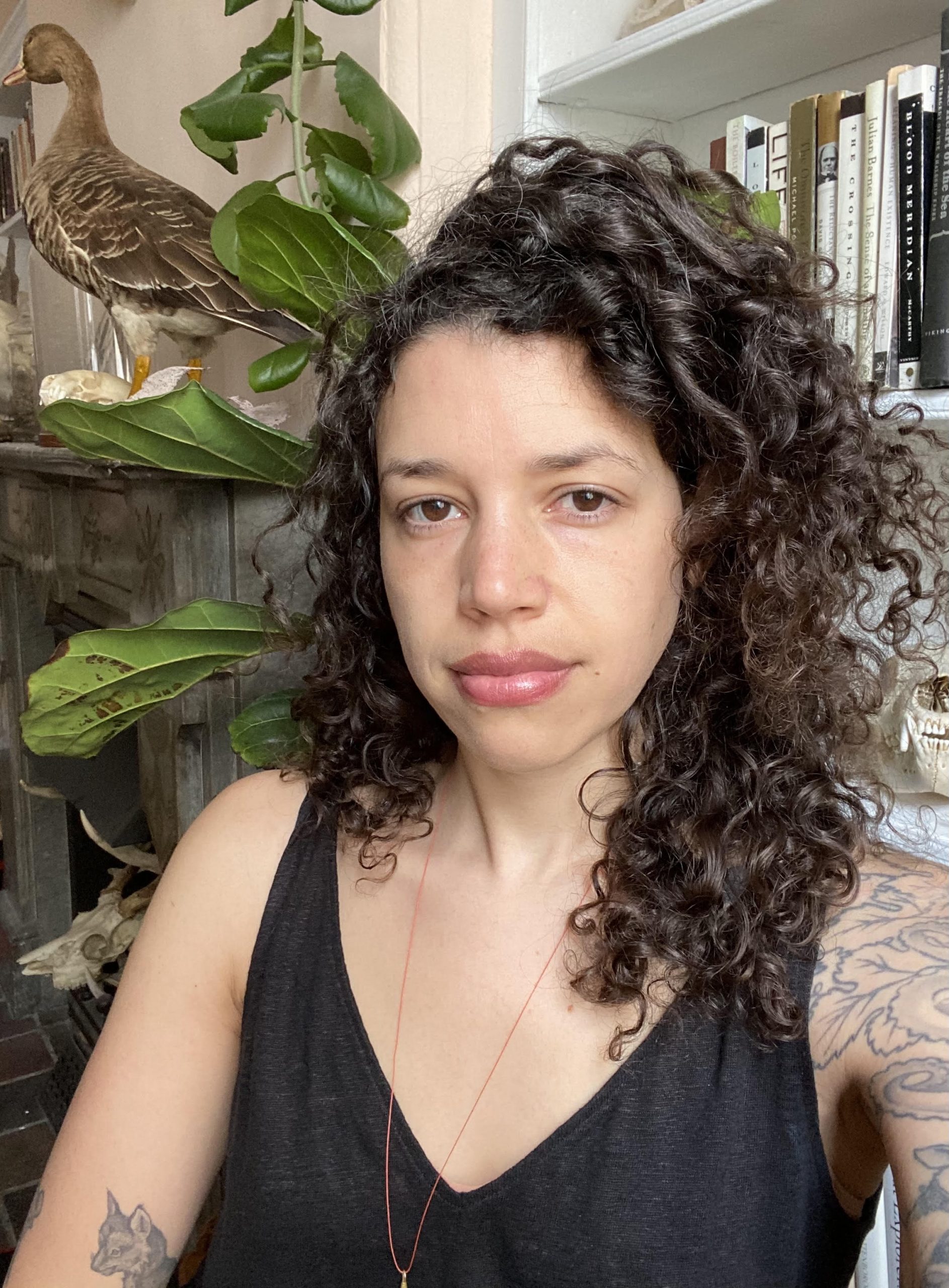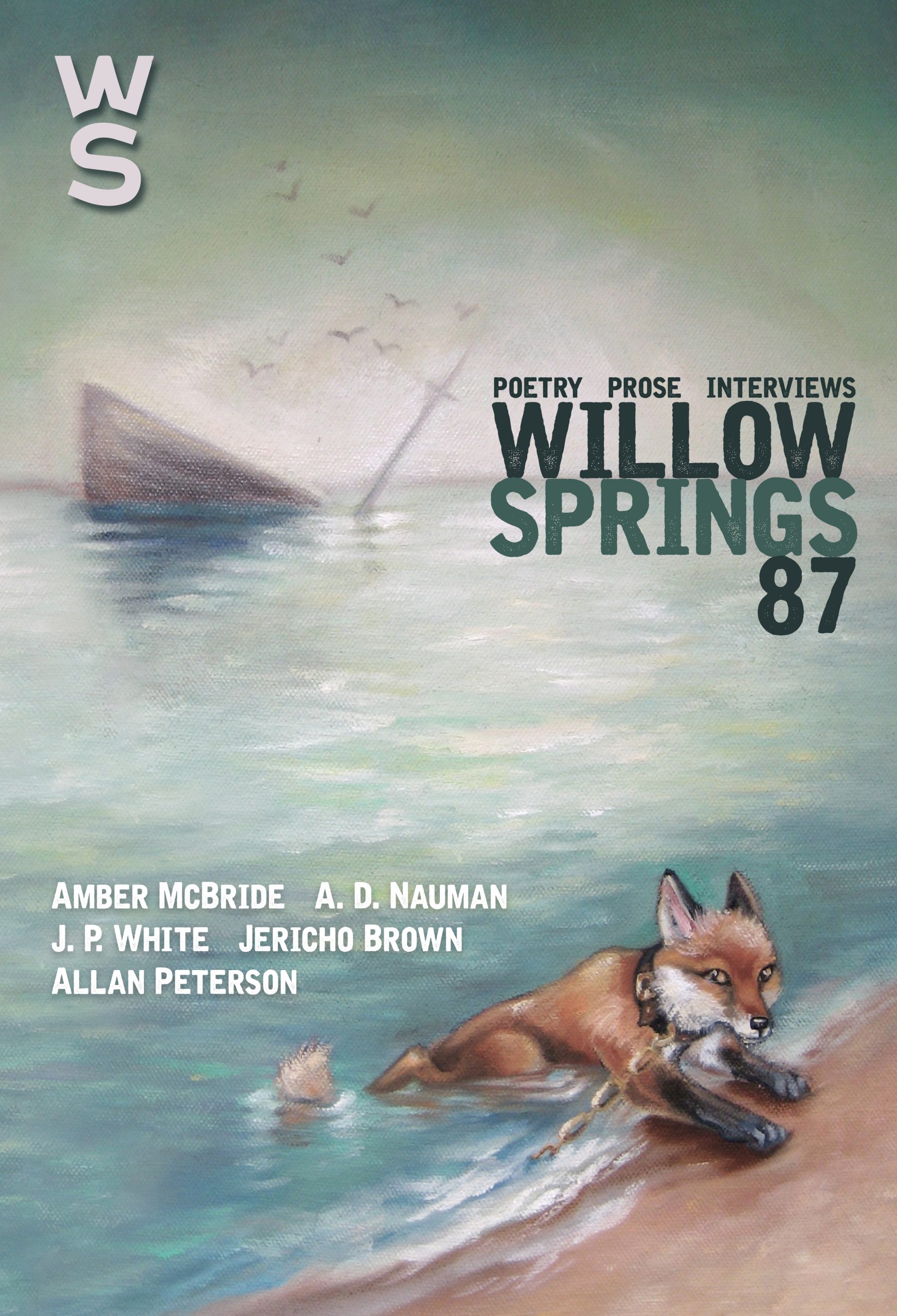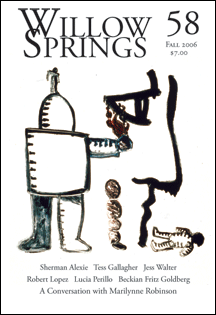
Found in Willow Springs 58
April 24, 2006
Sarah Flynn, Thomas King, and Adam O’Connor Rodriguez
A CONVERSATION WITH MARILYNNE ROBINSON
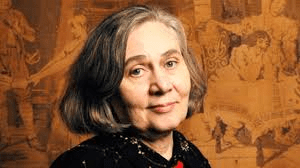
Photo Credit: YouTube
MARILYNNE ROBINSON WAS BORN and raised in Sandpoint, Idaho. After graduating from Brown University in 1966, she enrolled in the Ph.D. program in English at the University of Washington. While writing her dissertation, Robinson began work on her first novel, Housekeeping (1980), which received the PEN/Hemingway award for best first novel and was nominated for the Pulitzer Prize.
Robinson’s essays and book reviews have appeared in Harper’s, The Paris Review, The American Scholar, and The New York Times Book Review, among other places. An essay published in Harper’s, titled “Bad News from Britain,” formed the basis of her controversial book, Mother Country: Britain, the Welfare State, and Nuclear Pollution (1989), a finalist for the National Book Award.
In 1998, Robinson published a critically acclaimed collection of essays called The Death of Adam: Essays on Modern Thought. The New York Times Book Review observed that “one of Robinson’s great merits as an essayist is her refusal to take her opinions secondhand. Her book is a goad to renewed curiosity.”
Her novel, Gilead, an epistolary tale of a dying Iowa preacher writing to his young son, earned her the 2005 Pulitzer Prize for fiction and the 2004 National Book Critics Circle Award.
To consider Robinson only a creative writer is a mistake. She is a serious thinker, demanding of herself and her audience. During this interview, Robinson commented on a wide range of issues, from Darwinism to current political issues. About fiction’s ability to capture any meaningful truth, Robinson said, “I feel there is a great deal of highly conventional thinking in almost every area of life that must be discarded in order for a writer to make something with integrity in terms of that writer’s understanding.”
Robinson was interviewed in front of an audience at Eastern Washington University in Spokane.
ADAM O’CONNOR RODRIGUEZ
During your talk at The Met the other night, you said that all your characters within a book are actually part of one character. Can you expand on that statement?
MARILYNNE ROBINSON
It seems that fiction rarely achieves a sense of anything approximating, anything suggesting, the actual complexity or dimensionality of the human being. That was a problem when I was writing Housekeeping. I felt inadequate. I felt flatness. So my solution was to create what felt like one personality arrayed across a range of possible expressions of that personality. It seemed true from my own observations that a great deal of anyone’s character, of the experience anyone is formed by, their interior, is made up of things chosen against, things that do not fade, things one is attracted to but does not pursue—hopes or expectations or fears that are never realized but are nevertheless an important part of the interior weather any human being lives with.
Behavior you see in other people is the lingua franca behavior through which, normally speaking, we can be adequately intelligible to one another. We cannot alarm or puzzle one another excessively. And this is something that you learn, sort of like manners or the shorthand language of please and thank you. It is not intended to be a revelation of one’s character; it’s intended to allow you to pass through the world without exposing yourself, without damaging other people in ways you don’t want to. There’s inevitable role-playing that is a huge part of anybody’s behavior in life. This is not a negative statement. This is just the way we create a sort of uniform currency to make ourselves understandable, to be able to be adequate in circumstances that are perhaps casual, perhaps formal, perhaps very brief, and so on. If that level of anyone’s personality or character is taken to be a sufficient description of them, then obviously you’ve missed the whole human mystery, as far as that person is concerned. Being accepted at that level of self-revelation trivializes people.
And though it’s rare to see behind conventionalized behavior, you know as a matter of simply being able to extrapolate from experiencing yourself, that in every individual case, there’s infinitely more in the experience of another person. So my solution for the problem was to array characters in ways to show the impulses that might be particularly powerful, for example, and therefore least visible. I used to think of quantum physics, the idea that all possibilities remain until one is observed. I think that established a principle for me I’ve always clung to, which is that apparent oppositions are always oversimplifications. And to set up conflict, especially conflict of values, is something that very much simplifies the actual way experience and value exist in the world. For example, in Gilead, John Ames is not Edward because he has chosen not to be Edward; but nevertheless, because he defines himself against that impulse, he in a certain sense gets suffused with the impulse. He knows all the arguments, he knows his brother’s mind and understands the impulse away from the life he has chosen. And no doubt, if one were to think of Edward, one would think exactly the same way, that he has chosen against John, but in the fact of knowing everything about John, there is self-denial in self-definition of that kind.
THOMAS KING
The opening chapter of Housekeeping is written in Ruth’s point of view, yet it covers events for which she was not present. Can you tell us about the challenges of using an omniscient first-person as an entry point for the novel?
ROBINSON
I always tell my students you can do anything you can get away with, that implausibility is a problem of style. If people bring issues of plausibility to bear on what you’re doing, you’re not doing it well enough. You have to circumvent plausibility sometimes, the normal ways people have of understanding or documenting things in a journalistic model that supposedly applies. I think—and this is relevant to my family and their settling in the Pacific Northwest—that a lot of what I knew and a lot of what seemed important in my early life were descriptions of things I had not seen that had a profound reality in my imagination, because they were told among people whose importance to me is mythic, in the way that grandparents and aunts and uncles are to children. So I think there’s a huge psychological latitude with the first-person because we have a much greater store of experience than what we actually witness. The sort of I-am-the-camera approach to point of view is not psychologically rich enough to be adequate in any circumstance. In any case, the description of things one has not seen is something most people are capable of, partly because their minds can’t help embroidering and enriching whatever they’ve been told to attach importance to.
SARAH FLYNN
In your essay, “Facing Reality,” you wrote that the art of writing fiction lies outside the collective fiction we call “reality.” How do you grapple with our society’s collective fiction in your novels?
ROBINSON
I don’t grapple when I can avoid it, but I do feel that there is a great deal of highly conventional thinking in almost every area of life that must be discarded in order for a writer to make something with integrity in terms of that writer’s understanding. We’re in a very special period of time now—I suppose we have been for the last fifty or one hundred years, maybe since the telegraph—where there’s an enormous amount of rapid-fire information. There are huge, groaning burdens of what looks like scholarship lying around. These are things that people typically don’t have time to be skeptical of. But the accumulation of misinformation addles the mind, restricts the imagination. It makes it terribly difficult to think with the necessary degree of rigor. I have spent a great part of my life going to the sources, reading the original material. I learned this in graduate school, when I found out the great and revered scholars did not do that. And it makes many things fall apart, as you realize that things you’ve been told are true are not true. I think people can feel the falseness in the narrative they’re being given, but they don’t know where to begin doubting. My advice is to begin wherever you find a loose thread. The more you pull, the more you will find to pull.
Inside a recent Harper’s magazine, there was an article in which the writer asked, Why do Americans talk about the mentality of the country, the spirit of the country, being anything other than capitalist? He claimed that it was never anything but capitalist. And that’s not true. Capitalism was a bad word in this country for a long time. Banks were illegal in Iowa because they caused accumulations of capital. This writer said that, you know, The Wealth of Nations was published in 1776. Well, yes it was, but the book by Adam Smith that influenced the founding fathers was actually another book called The Theory of Moral Sentiments, a series of ethical lectures that he delivered to classes of Presbyterian ministers in preparation. The Wealth of Nations is about corn laws and how it should not be possible to constrict the flow of products, which caused starvation in England and Ireland. This is the basis of his theory, that there has to be a human economic order that does not starve the working class. The man writing this article, who was being so blustering, so authoritative, in Harper’s, had all kinds of information wrong. He probably learned it when he was a sophomore in college and never checked it or thought about it. The fact that somebody publishes something in Scotland in 1776 doesn’t mean it has any influence on something written in America in 1776. Probably not.
KING
What can be done about the wealth of misinformation people ingest? How does this misinformation affect society at large?
ROBINSON
A lot of people would have to make an epic of criticism, by which I do not mean theory. I mean criticism. I’ve done a lot of difficult study; that’s probably not my best-kept secret. And there is so much junk scholarship around. In the airport, I picked up this little book by Karen Armstrong called A Short History of Myth. It’s a terrible book. The two sources she uses over and over are Mircea Eliade, who was a disaster, and Ibid., which is another name for Mircea Eliade. I pretend it’s one of those medieval Islamic scholars.
I don’t know if any of you know anything about how biblical scholarship is done, but if you take some introductory course, you will discover there’s J, P, E, and D. These are the names for the major traditions that contribute to the Old Testament, supposedly. Now, I gave a lecture at a symposium of biblical scholars—serious people, right? And I said this is a completely ridiculous idea—that you can break these traditions down into these streams. And I made my case. And of course it threatened everybody in the room. There was a kind of silence until one venerable man raised his hand and said, “What does it matter what we write? Nobody reads it anyway.”
It matters. It matters. It matters. It matters. Add the fact that this was what you would call a conservative theological setting; these people were not Karen Armstrong. How in the world can you toil your life away, saying, What does it matter? How can you do that? People trust each other. That’s the whole thing, the reason why people have engulfed themselves in false models of learning about all kinds of things; it’s because they trust. They think if this is in print and this person has an M.Div., this means something. The cynicism of saying, What does it matter? is just unbelievable to me, and I don’t think that this is by any means a problem isolated in theology departments. It’s everywhere.
Indifference has done nothing but drain content out of the collective experience. We have these huge libraries. There’s nothing in the world like the American library system, nothing to compare. You can go to a library or get on your computer and find amazing stuff. I’ve done research on English Renaissance writers, books that were printed in the 17th century, and I had to cut the pages, because no one had read them since the 17th century, in that library, at any rate. But there it was. I could find what I needed.
We have this huge brain sitting there, waiting to be used. The way out of the problem, for most people, is to head down the street, if it’s not in their laptops. The amount of early literature you can call up online from universities is astonishing. But in many, many instances, it might as well have uncut pages.
FLYNN
Why don’t people utilize those resources?
ROBINSON
The idea of individual learning has been subordinated to the idea of getting degrees. Most people are anxious about employment, and the culture continuously reinforces the fact that you go to college to get the diploma because that’s your ticket to economic life. The idea that built the universities, which is that simply knowing is wonderful, seems to have all but disappeared. I visited a university that particularly emphasized theory. The graduate students said, We take theory because we can’t get hired without taking theory because universities need people to teach theory. So there’s this perpetual motion machine. Whether or not you think this is a fruitful way to approach literature is put to one side, because it’s like a driver’s license—you simply have to have it. This is not the life of the mind. This is not what Thomas Jefferson hoped for.
FLYNN
At times, you express doubts about the likelihood that your essays will change public discourse in a significant way. What motivates you to write nonfiction?
ROBINSON
I would worry about myself if I had serious expectations of changing public discourse. That is a large and rather immobile thing: public discourse. Nevertheless, some things strike me as important in a way that makes me have to work through them myself. I have always found that people were interested in these essays. I’ve never had any trouble publishing them. I’ve never had any significant rebuttal to what I write. I got sued by Greenpeace once, but I don’t count that as a rebuttal. On the one hand, it’s hard to imagine people will actually read what you write when you’re writing about the French Reformation or something. On the other hand, the impulse is certainly there, and there are people who read these things and to whom what I say is important. And God help us if everybody stopped trying to at least participate in public discourse. You have to try to say what you think is true.
KING
I’ve read that you believe society moves both forward and backward. What gains have we won in our nation’s or our planet’s history that are currently at risk?
ROBINSON
Well, there is the planet. There are obvious sorts of tradeoffs that I worry about. Many people in this country are quite scrupulous about environmental things. There are many laws and customs, national or local, that to some extent control what we do to our own immediate environment, but that has meant that what can’t be done within the limit of those norms here is done elsewhere, so that you get a relatively clean America and a completely poisoned China. I don’t consider that to be a desirable tradeoff. If your loyalty is to the human species, there are more Chinese than there are Americans, and on the most simple utilitarian basis, we have to worry about what happens to the Chinese and the Indians and so on.
The way the world economy has developed, every population has a certain percentage of bright, highly motivated people. The countries that have been slower in developing have huge, avid populations of people thrilled to be part of this cool, global economy, and at the same time, they have governments perfectly willing to make economic hay out of impoverished workers with low expectations. So we have children picking over dumps of discarded computers, pulling out both valuable and toxic things. If you read about China at the present time, they have riots in the countryside because of this hideous, no-holds-barred economic development they have gotten into, if economic development is the right word. There is, for example, a factory that makes a cancer treatment with byproducts so toxic that everybody around the plant for a good distance is sick. And, of course, the drugs are shipped to Europe and the United States.
This is one of those things where you can say, “Yes, we wouldn’t let that happen here,” but that only makes it worse where it does happen. There are tradeoffs as far as progress goes that are very vivid indeed. When people don’t have any control in a country like China or India because they are so poor that anything seems better than nothing, then the constraints that might make a moderate disaster of something that happened in Minnesota, make it an absolute disaster by their absence in China. It’s not something we want to talk or think about. A lot of the warfare in Africa is apparently about a mineral necessary for cell phones. We all have our nifty cell phones and we do not look into the economic consequences, which become warfare and starvation in another setting. I wish it were harder to come up with examples, but that’s just technology. And there’s also war.
One of the things most interesting to me about doing research into the history of the Middle West was learning about colleges created there before the Civil War, in the 1830s and 1840s. They were already racially integrated, gender-integrated. They created a system for making everybody at a college work, including the faculty, so there would be no economic barriers to education, and, they said, to make a more useful educated class. These are things I think we would consider very advanced. A lot of schools, like Mount Holyoke, Grinnell, Oberlin, Amherst, that are now elite institutions, were intended as places where no economic barrier to education existed, where it wouldn’t cost you anything to attend. There’s been a huge sort of turning over, like an iceberg. There has been not only the loss of the ideals that went into the creation of the colleges and the society they influence, but also a complete and absolute amnesia that these things were ever done or intended. And if it can happen once, it can happen again, which is something we must be aware of.
FLYNN
In “The Tyranny of Petty Coercion,” you wrote that, as a liberal, you were disappointed with liberalism as a movement. Have your views intensified or changed over recent years?
ROBINSON
I have certain vivid touch points. When major issues come up like whether we should invade Iraq, I’m very sympathetic to the side that says no, because that seems really smart, and it was smart before the whole enterprise ever began. If questions arise about whether resources should be spent on creating the kind of social equality that will prevent us from stigmatizing or disabling subsequent generations because their parents happen to have been poor, I’m very much in favor of people who support such an idea. Now, these kinds of convictions make me a completely committed liberal. At the same time, there is so much nonsense and flaccidity and uncritical thought on the side of liberalism that it is not a good servant of its own cause.
And my idea of patriotism, given the completely arbitrary nature of our national identity, is that patriotism matters. I consider myself patriotic because I don’t want American people to go hungry. I don’t want American people to spend their lives unemployed when they want to make a creative contribution to the culture. I don’t want women to be forced into abortion because they can’t possibly stop working, supporting their families on a minimum wage that is not adequate to support their family. As far as I’m concerned, patriotism is, first of all, an obligation to create humane circumstances within our country. I don’t think that should be a hard case to make, but I think that when people on the other side say, “We’re the patriotic people,” the impulse of liberals is to say, “Well, we don’t think patriotism is such a terrifically good idea.” They give up their vocabulary. They give up the concepts. They allow people to define patriotism as putting the army, without proper equipment or support, in a circumstance it should never have been in. This is supposedly patriotism. The surrender of the major categories, like family values: I think the minimum wage is probably the greatest family value anybody could articulate, because it allows people to provide for their families. What more, you know? So there are clear liberal issues being very badly articulated.
FLYNN
Why do you think we fail in those areas?
ROBINSON
I just cannot imagine. In my cynical moments, I think it’s because a lot of the leading members of the liberal population actually flourish under administrations like the present one, partially because a lot of them are highly educated people whose income is high enough that tax cuts benefit them. Some people are pretty glad that the government can recruit troops from an economically disadvantaged class disproportionately so as to not draft their children. I’m afraid it’s true, to a certain extent, that unacknowledged self-interest makes them hesitant to actually champion what ought to be their cause.
FLYNN
You’ve said that obsessions drive you and that those obsessions are not often fiction. What are some of your present obsessions, and do they develop into nonfiction more often than fiction?
ROBINSON
Well, my current obsession is with literature of the ancient Near East. I’ve been reading Hittites and Canaanites and Babylonians and Greeks and Egyptians. I’m going to be teaching a course in the fall on Greek tragedy, and I was thinking about the importance of scene and dialogue, then the next thing I knew, it was Euripides, Sophocles. But it seems to me that there’s a narrow view of what Greek tragedy was or what the settings of Greek ancient writing were, so I’m reading all this stuff that would have been culturally contiguous, that they probably would have had some acquaintance with. I want to have a fuller ancient sense of what I’m looking at when I look at these plays, which tend, today, to be read through Nietzsche or somebody. That’s also working its way into my nonfiction, but I don’t want to talk about that.
O’CONNOR RODRIGUEZ
Running through both your work and published interviews is a sense of your romance with the simplicity—and even adversity—of the past. How does that romance affect your view of contemporary life?
ROBINSON
I don’t know if I believe in a simplicity of the past. Actually, I don’t like the idea of nostalgia. I don’t like the idea that once everything made sense and now it doesn’t, and once everything was easy and now it isn’t. You know, Oh, to have lived before the age of the antibiotic! What are we talking about? But I think that prejudice against the modern period has actually created a lot of trouble in the modern world, the idea that somehow or another we’ve stepped off a cliff and it used to be better and we have to hack our way back to a more meaningful, primal life. That’s basically fascism, which I think we should avoid.
KING
You’ve also said that though your reading informs your writing, you almost never read for that specific purpose. What motivates your study, and how does it develop into a writing project?
ROBINSON
That is so mysterious. I get something on my mind or I pick up a book that seems to call my name, and I read something I didn’t know before or something that makes a better text, a better fabric of something I had known for some other reason. And it just feels good. It’s an enormous pleasure to me. If I could, I would just read and read and read. All kinds of strange things. Difficult things that make me feel that my perspective is richer than it was before. As far as writing goes, every once in a while I feel like I have to write something. I am the driven slave of these two impulses. It’s a nice life.
O’CONNOR RODRIGUEZ
Your laughing at your own work while reading aloud the other night fascinated me. Why did you laugh—do you see the worlds you create in your novels as real?
ROBINSON
It’s like remembering a dream; because when you write, you visualize, then when you read, the visualization returns. Also, I remembered what I was doing when I wrote that scene. I had modeled Gilead on a town in southwest Iowa called Tabor, which was founded by people from Oberlin College. They had founded a college, and they had a station on the Underground Railroad. There was a Congregational minister there who had 200 rifles in his cellar and a cannon in his barn. But, in any case, there were tunnels under the green in Tabor. Apparently, you can still see where they were. But I was thinking, If New Englanders were on the frontier of Iowa, how would they get in trouble? I wanted people to have some idea of what they were doing, but not to idealize them, not make them feel like stuffed wax museum figures or something. So I thought, Well, they would dig a tunnel. Tabor is in the sand hills; there’s nothing there but dunes, so even as you drive there’s sand blowing across the road. Obviously they would be delighted that it was so easy to dig in the soil. I started writing this scene and more and more kept happening. I remember thinking, Where did that come from? You create the occasion for your imagination, then all kinds of things come into play and surprise you. The best part of writing.
O’CONNOR RODRIGUEZ
The few negative reviews of Gilead imply that John Ames is a one-dimensional character, with faith being his only noticeable trait. How do you see John Ames?
ROBINSON
I get all my reviews from my publisher, and my publisher clearly censors them, so I’ve never heard that criticism. I have a very strong imagination of John Ames that was generated by the fact that I thought of him as a voice in my head. I was surprised to have a male narrator. I trusted this voice. I felt as if someone were speaking. I’ve been very kindly treated by the reviewers. I have no complaints, but there are hordes of millions of readers, and it’s just unbelievable to imagine you could please them all. And, especially at this particular moment in time, there are a lot of people that find a lot of religious thought, and so on, irritating, which only makes it clearer to me how kindly I have been treated, because that is not the most universally acceptable subject at the moment. But, in any case, whoever the reviewer was, bless his heart. I hope he finds books he likes better.
FLYNN
Do people make judgments about you because of how open you are about your religious beliefs?
ROBINSON
I’ve had people say, “Aren’t you afraid to be identified with religion?” and so on. If people said to me, “Marilynne, go home. We don’t want to hear from you anymore,” I would think, Whew! It’s not like I have a big stake in this, and if people reject what I say on the basis of its having a strong religious cast, that wouldn’t surprise me and it wouldn’t be an issue for me. I’m not writing for anyone. From what I see, from what I read, I wouldn’t be surprised if I encountered friction, but I can’t report any. So here I am.
FLYNN
In The Death of Adam, you said that belief in Darwinism is like belief in the existence of God, and that it’s based on faith. And you defined faith as “a loyalty to a vision of nature, of the nature of things despite its inaccessibility to demonstration.” Do you believe that all of science is ultimately based on faith?
ROBINSON
No. And, also in that essay, and in general, a sharp distinction needs to be drawn between evolution and Darwinism. Darwinism has its specific history, and a specific ethos; the idea behind Darwinism is that there is a continuous sort of attrition among the varieties of organisms that is the consequence of competition for survival. If you read the 19th century literature that surrounds the popularization of Darwinism, it leads directly to eugenics; it makes people regret that anyone ever invented the smallpox vaccination. And even before Darwin wrote, when it was Malthus and earlier people, Townsend and so on, who were writing in these terms, it rationalized the death by starvation of the lower classes of European civilization. So it was the you-have- to-be-cruel-to-be-kind thing where the human species became better and better by the fact of the deaths of people unworthy to survive.
This had enormous practical consequences in European and American society and history from before Darwin. “The survival of the fittest” was not his phrase. He got it from the British, Herbert Spencer, whose idea of this was of the progressive attrition of the unworthy or the unfit. And so with Malthus. It goes way, way back into British thought. But what Darwin did was interpret it into a scientific theory that explains, as it were, the origin of species, although he himself said he never did explain the origin of species. Because there are all sorts of things about the phenomenon of speciation that his theory couldn’t address. But, in any case, I believe that it is still true that Darwinism is contaminated with racial theory, eugenic theory, and all kinds of other things. It had a huge surge in Britain while I was living there under the reign of Mrs. Thatcher, who famously said, “God prefers the rich to the poor and nature proves it.”
People have known since antiquity that there were fossils of creatures that no longer existed, so the idea that life forms have changed over time is not a novel idea. If evolution means the change of life forms over time, then I think that it’s not difficult to affirm the plausibility of evolution, but if it means that the changes in life forms over time were the result of an inevitable competition in which the strong destroy the weak or whatever, this is something that is not describable, because we know that, for example, species go right along until they disappear. So if that were true, you would have the continuous modification of a species that would continuously enhance its survival virtues, but instead you have a much more disrupted evolutionary history. In other words, Darwinism ought to be considered as a moment in the scientific-social-military history of the West that does not conclusively, for all time, define the idea of evolution, and the defense of evolution as a theory ought to be disentangled from the defense of Darwin or the ideas attributed to Darwin.
If you read the literature around the First World War, there were all sorts of people in favor of it. If you read a book of Tolstoy’s written just at the turn of the century—The Kingdom of God Is Within You—you’ll notice that he was a pacifist, and he got letters from every significant person in Europe about why he shouldn’t be a pacifist, and many of them made arguments that war clears out the undesirables from society. It is genocide directed against one’s own population. I guess that’s not uncommon, but it’s absolutely horrendous, and it accounts for a great deal of what was horrible about the First World War, which is that nobody really seemed to want it to end. This is the kind of thing where you have to go back and read what people were saying about these things. If you just take it that Darwin is the force of light and William Jennings Bryan is the source of darkness, you have no idea what the issues are. Jennings Bryan himself was a pacifist when there was a huge issue of war addressed precisely in terms of its alleged Darwinist merit.
FLYNN
How do we disentangle abhorrent forms of faith from forms that have value to us as a culture?
ROBINSON
A lot of things can’t be dealt with on a cultural level. One thing interesting about being human is that you are responsible to a great degree for your own sanity, your own ethicalism, your own moral solvency, your own intellectual seriousness. It would be nice if these things could be dealt with at a social level, but whenever human behavior is controlled at a social level, even with the most benign intentions, it goes wrong. I think there is no point in history where people have not used valuable things for destructive purposes. Perhaps what we have to do is make people feel more deeply that they are responsible as individuals for their moral consequences. For example, I think a lot of religious excesses don’t come from religions themselves; they come from passionate identification, the eagerness to say I am X and not Y, and those Y people have always irritated me and it would be much better if the world were entirely X. We’ve gone through this little dance over and over. If we could think beyond those categories, it would be great, but that’s something people are individually responsible for doing.
FLYNN
In your essay on the family, you say that the attempt to impose definition on indeterminacy is about the straightest road to mischief that you know of, yet you define the word “family” in the next sentence—
ROBINSON
I think that my definition is very broad indeed. It has to do with loyalty and affection more than anything else. I think that you know who your family is, in that sense, because you know where your loyalties are and what your fondnesses are, or you probably are in the course of learning. That’s something that you know because it’s created out of your own circumstance, out of your own emotional life. So it’s accessible to definition in that sense, but whether that means there’s a sociological definition that could apply, I don’t think that’s true. I think what I’m saying is that we have to respect the fact that people’s lives constellate themselves in terms of loyalty and in terms of love and that this is something that other people should be sensitive to and acknowledge rather than trying to enforce a definition.
O’CONNOR RODRIGUEZ
You said at your reading that you wrote the sinking horse episode in Gilead in one sitting. That section works as a story. Do you often write short fiction?
ROBINSON
No, never. When I was in college, I tried, because I took two workshops, and it’s so nice to workshop a short story. So I would hack and hew at something that always had fifteen characters and three generations. I just cannot think at that scale. I wish I could, but I can’t.
KING
You work a great deal with young writers; are there any emerging voices that challenge your concept of what a poem, novel, or short story can be?
ROBINSON
I don’t know that I have particularly settled notions. I hope not. What you’re always trying to do is help somebody write in a way that is distinctive for their purposes. The idea of trying to conform anybody to pre-existing notions of what should happen—that would curtail their potential, which is not what we want to do. You always hope to be surprised. When I’m teaching a workshop, I ask people to name the best paragraphs in a story, and the degree of unanimity is impressive, which is something that helps break you out of the constraints of subjectivism. Because we all know some writing is better than other writing. Still, it’s hard to make people accept the legitimacy of the distinctions. The most important thing, as far as the teaching of writing is concerned, is to sensitize the writer to what he or she does well. There’s a certain sense of experience or concentration, something that goes into writing well that you learn how to return to. You begin to be a good reader of your own writing because you know what part of your consciousness it’s coming from.
KING
You’ve mentioned a thinness or flatness in contemporary fiction. What do you consider the root causes of that?
ROBINSON
I think there’s thinness in all literature that is not of the highest order of successfulness. I’m not saying there’s anything about this particular moment, or people writing now—I wouldn’t want to generalize by saying it’s more true now than it has been historically. If you go down the wrong row in a library, you find a lot of bad old novels. But I think it’s a major problem of the art, because it is about, as much as anything, human inwardness and how someone who has a profound experience of the self also interacts with other people. That’s where human complexity lies. That’s a hard thing to accomplish in fiction.
KING
Is that part of the reason your two novels are narrated in first-person?
ROBINSON
In both cases, I felt as if I knew a voice. I don’t know where the voice comes from. I don’t know why. I don’t know if I will ever write other than in first-person. But I feel like I’m being faithful to a voice that is not mine and that’s where the first-person comes in.
KING
How can a third-person narrator be handled successfully?
ROBINSON
The most successful third-person writers break all the rules. When you read Dickens, he just plunges in. You get these great panoramic scenes of London or something, and then, zoom, you’re so close in a consciousness. And if you read The Brothers Karamazov, you think, How did I get here? Chekhov does it all the time. The idea that there are these chaste, objective third-person narratives is really a cross that writers ought not to bear. Basically, you can do what you can get away with, and if you look at the great classic third-person narratives, they’re all over the place and they just make it so you don’t care.
KING
You have a lot of stories within stories, encapsulated episodes within your novels. Do you access your own life for that material or is most of it pure imagination?
ROBINSON
They are mostly imaginations. There are things in Housekeeping, because it was set in a very stylized version of the town I spent a lot of my childhood in, that reflect my own life, like the layout of the house with the bedroom that opens into an orchard—that was my grandparents’ house. All these crazy details like that. But when I wrote Housekeeping, I thought it would never be published. I knew my mother and my brother would read this book and would get all these little allusions, so that was part of the fun of it. But I was very struck by hearing stories in my family, little parables in a certain sense. And I think that way of putting a coherent sense of things together probably influenced the fact that I do receive imagined anecdotes for those purposes.
O’CONNOR RODRIGUEZ
Speaking of place, what you said the other night about how people love the place they live and think everywhere else is going to hell—do you think that statement is true globally as well as nationally?
ROBINSON
I think that’s fair to say. There are strange things, like that our press covers every crime and that sort of thing. I lived in France for a while, and they have a good handful of newspapers that don’t really cover crime or anything like that. If they do cover crime, it tends to be something that happened in California. And it’s strange, because whenever something bad happened locally, they’d say, “The Arabs.” Because all the sociopathic stuff that happened was passed around by word of mouth and that leaves no public reality for it ninety-nine percent of the time. So they have this really sinister attitude toward whoever are the disfavored people, typically the Arabs, and then they also get this stuff that comes from the American press, which looks incredibly weird and gothic if you’re not used to having that type of information about yourself. There’s a way in which, by virtue of our beloved and forever-to-be-revered First Amendment, we strike most of the world as being a completely crazy place.
When I was leaving France, a little delegation of my neighbors came over and said, “You do not have to go back.” And I said, “Well, actually, I’m happy to go back.” And they said, “It is her country, all the same.” So we’re the dumping grounds for the darker part of world opinion, in many cases, as a sort of accident of cultural history. At the same time, I think it is true that people typically love the place they are and fear the world they don’t know. And, especially at this moment in this country, when there’s such regional polarization, people have categorical hostilities against people because of the color their state turned on election day, and that really fuels this very unhappy habit we have of imagining that if we step outside our own county or our own state, we are in some wasteland.
O’CONNOR RODRIGUEZ
What value do you think writing or art has in transcending that regionalism?
ROBINSON
I think anything that transcends it has value by virtue of transcending it. I’m very glad that dear old Gilead has been warmly received in disparate places, and I’m traveling around partly because I think it would be nice if we were all talking to each other. I wrote an essay that got printed in The American Scholar, and it’s actually kind of an attack on religious fundamentalism from the perspective of a religious liberal, and I startled certain of my fans, who thought I was a different person. They say things like, “It’s so nice of you to write something that puts a fundamentalist minister in a positive light.” And then I say, “He’s not a fundamentalist.” And they say, “Well, he quotes the Bible.” But, in any case, I certainly wish we could all talk to each other. The country needs to have a deliberating population at this time and not just a lot of line drawing.
KING
What gives you hope, if you believe hope is possible?
ROBINSON
I have hope. That’s part of the reason I sometimes think I do a lot more traveling than I ought to. You know, you come to Spokane, which I happen to know from my childhood, but most of the country has no conception of Spokane—and believe me, they do not even pronounce the name right. And I come here. People are happy to be here. They have this beautiful park. They have a nice literary series. There’s a great deal in the city that obviously has been assigned an appropriate value, restored, enjoyed. I went to North Dakota in March for a literary festival and, from an outsider’s point of view, North Dakota in March is a pretty forbidding landscape, but the people there love it and they think, How can I possibly eke out a livelihood that will allow me to stay in North Dakota? Otherwise I might end up in South Dakota! But they have their literature, they have their painters, they have folklore that goes with the Native American population there, and so on. Even though I’d have to train my eye for a while to see what they loved so much about that environment, there is no question that they do and that in the fact of loving it, they are creating value in and around it all the time. And, again, this is not just North Dakota. It’s a phenomenon you find over and over again.
